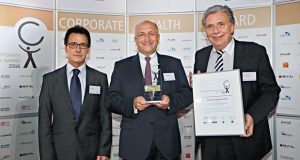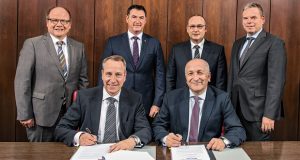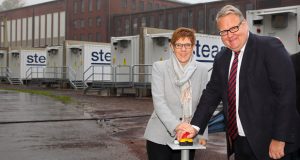In mid-November 2016, STEAG GmbH, Essen/Germany, signed a contract to acquire the shares of energy supplier Vattenfall in the Lauta thermal waste treatment facility in Saxony (T.A. Lauta, 74.9 %), as well as the industrial power plant (IKW) in Rüdersdorf near Berlin (100 %). Together, the two plants have a waste incineration capacity of 475,000 t/a. The two parties have agreed not to disclose the purchase price paid. The German Federal Cartel Office has already approved the acquisition.
For STEAG, the incineration of waste and special fuels is already a familiar business area. Indeed, STEAG had already held a 25.1 % stake in T.A. Lauta since it was commissioned in 2004 and operates the Leuna refinery power station, which generates electricity and heat from the refinery’s production waste. “STEAG specializes in generating electricity and heat using challenging fuels and sophisticated technologies. We have decades of experience in operating and optimizing power stations, as well as in the disposal of power station production waste,” explained Joachim Rumstadt, Chairman of the Executive Board at STEAG GmbH. “Having acquired these facilities, we are able to extend our portfolio to include additional base-load-capable generation capacities that are 50 % CO2-neutral. This brings us two key benefits. Firstly, we are increasing the proportion of renewable energy sources in our portfolio for the production of electricity and heat. Secondly, we are also extending our business activities in the waste-to-energy market through the strategic market entry.”
In future, all activities associated with the waste incineration market will be bundled at a new subsidiary, STEAG Waste to Energy GmbH. With its subsidiary STEAG New Energies, STEAG is also one of the key players in the thermal biomass utilisation sector. At its eleven facilities located throughout Germany, the company currently processes approximately 550,000 t of biomass per year, primarily scrap wood. The heat generated in this process is fed into district heating grids or supplied to industry as process steam.
However, STEAG’s generation portfolio is not the only one to benefit from acquisition of the plants. Rumstadt sees further potential for the company’s subsidiaries STEAG Power Minerals (SPM) and STEAG Technical Service (STS): “STEAG Power Minerals is market leader in the sale of power station by-products, such as fly ash, FGD gypsum and melting chamber granulate. It now has the chance to use its expertise in a new market with this project. This also applies to STEAG Technical Service, which offers a broad range of services in the field of maintenance. In the future, we are also keen to position this in the waste-to-energy market.” (STEAG/Si.)


